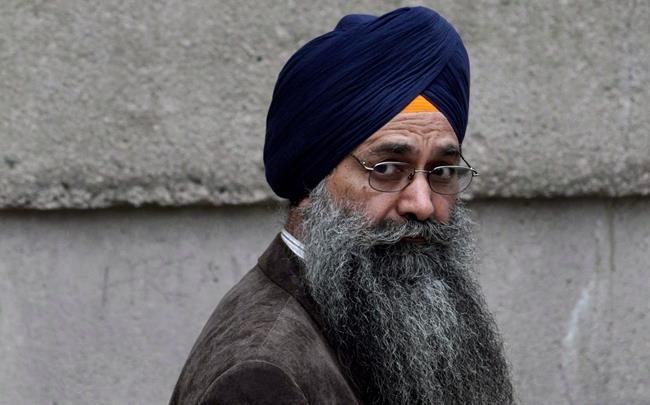The only man convicted in the 1985 Air India bombing can skip future counselling sessions even though a psychologist says he has “made minimal gains in therapy,” the Parole Board of Canada has ruled.
Inderjit Singh Reyat, who lived in the Duncan area when he helped to build a bomb, has been convicted twice of manslaughter in the deaths of 331 people, as well as for perjury after he lied at the terrorism trial of his two co-accused, who were later acquitted.
When Reyat was released from prison in 2016 after serving two-thirds of his third sentence in the perjury case, he was put on special conditions, including that he attend counselling “to address contributing factors to your offending.”
But that condition was removed by parole board member Catherine Dawson on April 29 because Reyat was no longer benefiting from the counselling. The psychologist who worked with Reyat said in a report that he had “made minimal gains in therapy.”
“You have presented as guarded, denied your involvement in the Air India tragedy, and have denied that you are a person of strong political beliefs,” Dawson said in her decision, released Monday.
Reyat told his counsellor that all he had done is supply bomb parts to the terrorists, which he saw as “an act of kindness.”
“You have explained that any ‘missteps’ were a result of bad judgment in your desire to be helpful. Nonetheless the psychologist indicates that you appeared to partly address a cognitive distortion that in your desire to ‘help’ you may have turned a blind eye contributing to violence on a mass scale,” Dawson wrote. “The board remains very concerned with the gravity of your criminal offending that contributed to the deaths of 331 people. The impact of these deaths on families as well across the community and around the globe is incalculable.”
Dawson said Reyat’s remorse was more about the impact of his crimes on his family, not on the victims. “The board has noted you have not gained measurable insight into the harm you caused others but only the consequences that you and your family experienced. You have not developed empathy for others through the process; the gains you have made in psychological counselling are limited.”
Dawson said Reyat’s case-management team “has been working closely with a police high risk target team in order to monitor” him in the community. “The report indicates there are no current conditions with respect to your activities or associates in the community.” The official end of Reyat’s sentence comes in August 2018.
“Having thoroughly considered the contents of your file, the recent findings of a psychologist and the professional opinions and recommendations of your case management team, the board has determined that psychological counselling is no longer advancing your correctional plan and is unlikely to do so in the next three months,” Dawson said.



